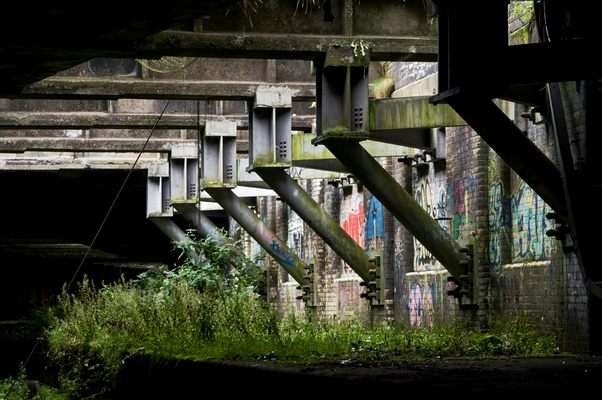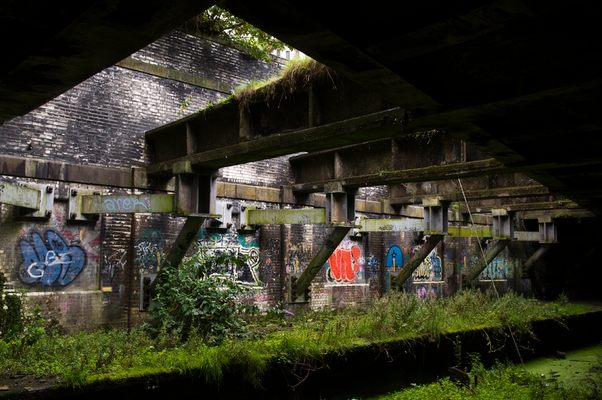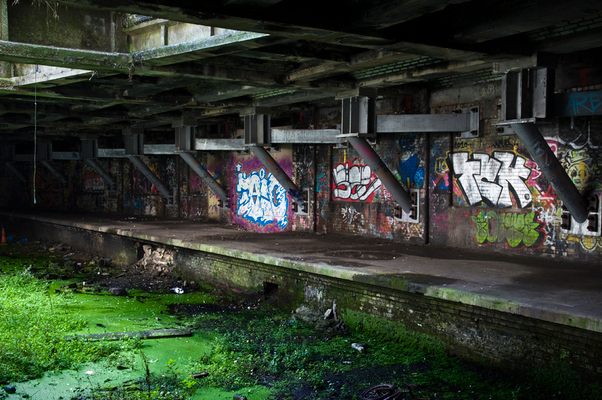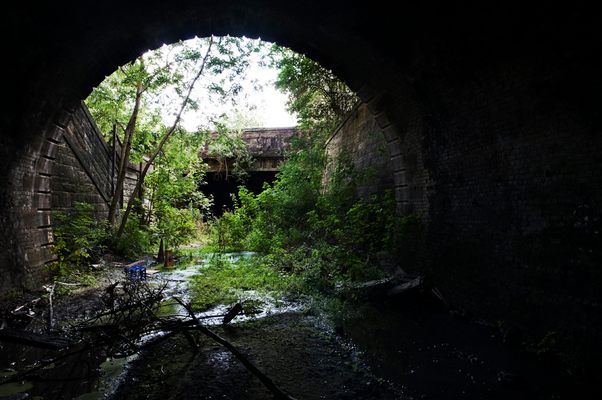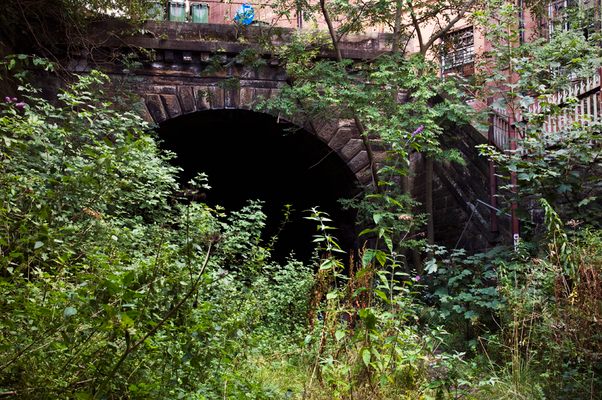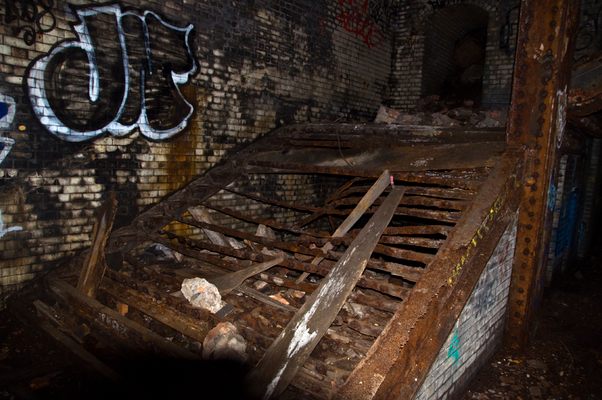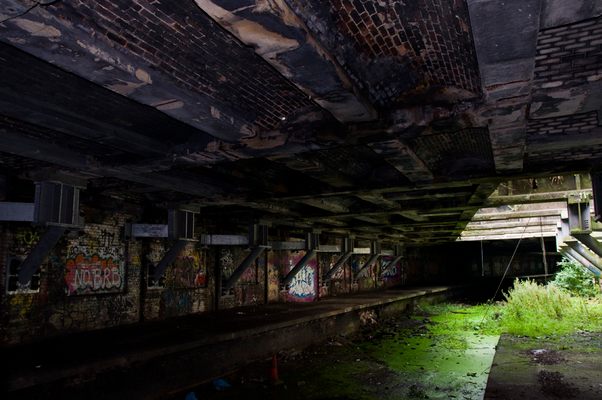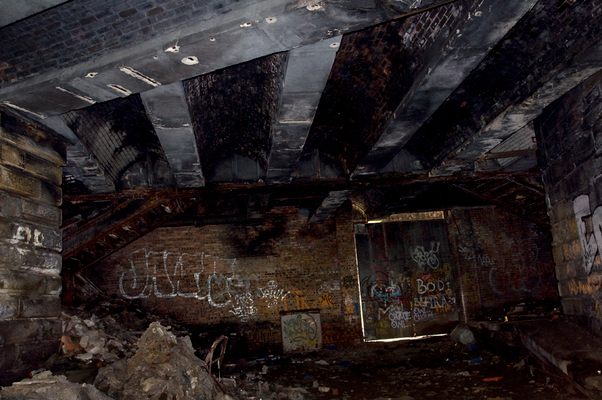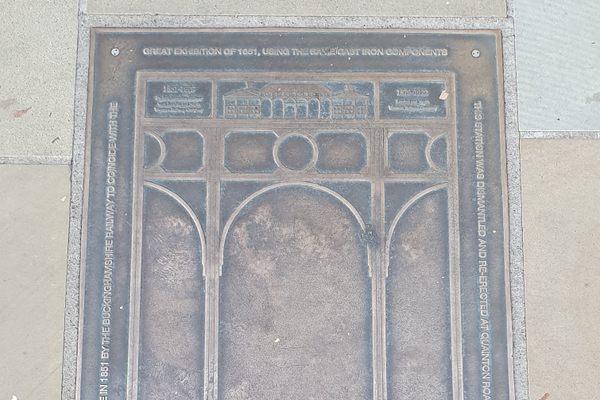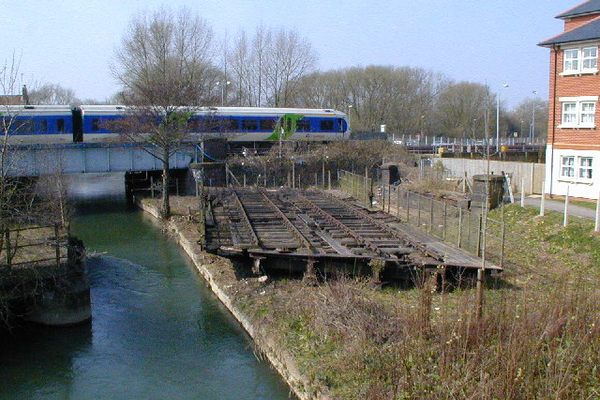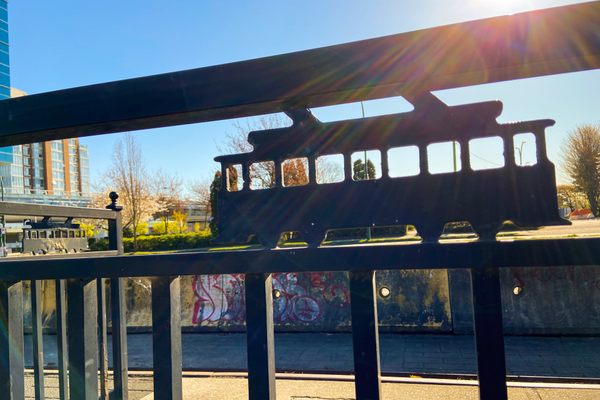About
A ghost station from the grand Victorian age of rail hides within the Glasgow Botanic Gardens. Its platforms are now a haunting reminder of the past.
The station was opened in 1896 by the Caledonian Railway Company as part of the now-defunct Glasgow Central Railway line. The platforms and railway lie beneath Glasgow’s botanic gardens, from which the station took its name.
The main station building was located above ground at the edge of the gardens. Notable for having two tall chimneys topped by onion domes, it was often referred to as "The Kremlin" by locals. A gatehouse, which still stands at the entrance to the gardens, gives an idea of what this building would have looked like.
Unfortunately, the station and line were never really popular with the public due to the grimy, soot-stained, smoke-filled conditions they had to endure. Many people favored street trams as a cleaner, more convenient travel alternative. A steady decline in use led to the station’s permanent closure in 1939. The line itself was eventually closed in 1964 when it was deemed no longer commercially viable.
After their closure, the platform and tunnels were left to decay, but the station building became a local landmark. It was converted into a space for numerous local businesses, most notably a café called The Silver Slipper and a nightclub called Sgt Pepper's.
However, disaster struck on the night of March 22, 1970, when a fire broke out during a battle of the bands contest in Sgt Pepper's. The suspected cause was a cigarette left burning in the attic space. The only unfortunate victim of the blaze was the café owner’s dog. Sadly, firefighters had to tear down the towers due to their instability, and the remaining structure was razed to the ground shortly thereafter.
In subsequent years, the tunnels and platforms became a haunt for local explorers and graffiti artists. Eventually, access was closed off, leaving a time capsule of sorts that nature is now slowly reclaiming (appropriately enough, given the location).
Today, the platforms can still be viewed from above through open air vents in the botanic gardens. The vents originally allowed smoke from steam trains to escape the passenger-packed platforms. Nowadays they act as a window to the past, offering the curious a peek into a long-forgotten vestige of a bygone era.
Related Tags
Know Before You Go
You can view the ventilation shafts from a path within the botanical gardens. A sign on the fence explains what you're looking at.
NEW - Flavors of Scotland: Beyond the Haggis
Smoked seafood, single malt whisky, and warm hospitality.
Book NowCommunity Contributors
Added By
Published
November 5, 2019
